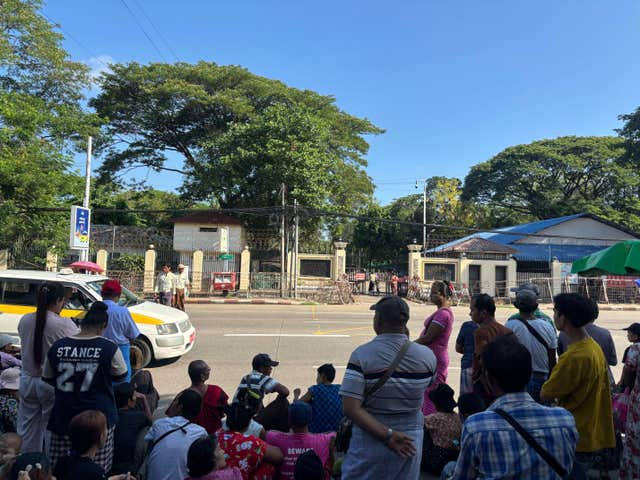Myanmar frees nearly 4,900 prisoners to mark traditional new year
Thirteen foreigners will be released and deported according to state-run media.

The head of Myanmar’s military government has granted amnesty to around 4,900 prisoners to mark the country’s traditional new year, state-run media reported on Thursday.
It was not immediately clear how many of those were locked up for opposing army rule.
Senior General Min Aung Hlaing, the head of the ruling military council, pardoned 4,893 prisoners, as per state-run media network MRTV. Thirteen foreigners will also be released and deported from Myanmar, it said in a separate statement.
Other prisoners received reduced sentences, except for those convicted of serious charges such as murder and rape, or those jailed on charges under various other security acts.
If the detainees violate the law again, once freed, they will have to serve the remainder of their original sentences in addition to any new sentence, according to the terms of their release.

Mass amnesties on the holiday are not unusual in Myanmar, with releases occurring nationwide.
Dozens of relatives and friends waited early on Thursday at the gate of Insein Prison, on the outskirts of Myanmar’s largest city, Yangon, in the hope of collecting a freed loved one.
No details were available about the number of prisoners released from Insein as part of the amnesty.
Myanmar has been under military rule since February 2021, when its army ousted civilian leader Aung San Suu Kyi’s elected government.
The takeover was met with nonviolent resistance, which has since become a widespread armed struggle. The country is now in civil war.
Some 22,197 political detainees, including Ms Suu Kyi, were still in detention as of last Friday, according to the Assistance Association for Political Prisoners, an independent organisation which tallies arrests and casualties linked to the nation’s political conflicts.
Many political detainees had been held on a charge of incitement, a catch-all offence widely used to arrest critics of the government or military.
The offence is punishable by up to three years in prison.
This year’s celebrations of Thingyan, the new year’s holiday, were more reserved than usual due to a nationwide grieving period following a devastating earthquake last month.
The country is struggling to recover from the 7.7 magnitude quake in March, which hit the nation’s central heartland.
The highly destructive earthquake left about 3,725 people dead and levelled structures across the region.
In a speech broadcast on Thursday, Min Aung Hlaing said his government will carry out reconstruction and rehabilitation measures in those quake-affected areas as quickly as possible.
He also reaffirmed plans to hold a general election by the end of the year and called on opposition groups fighting the army to resolve conflicts via political means instead.
During the holiday, the violent struggle between the army and pro-democracy forces continued with armed clashes in the countryside.
The number of casualties remains unclear.





